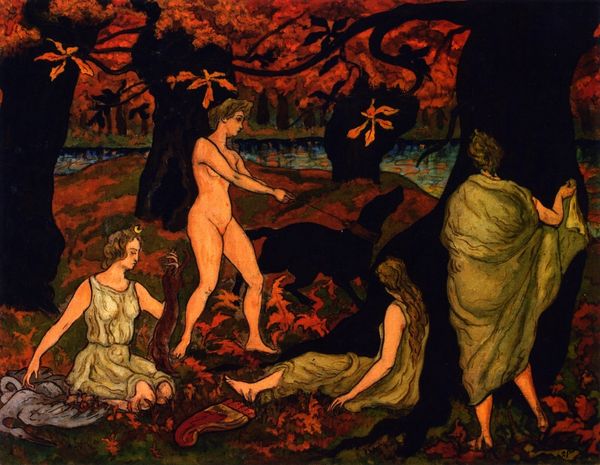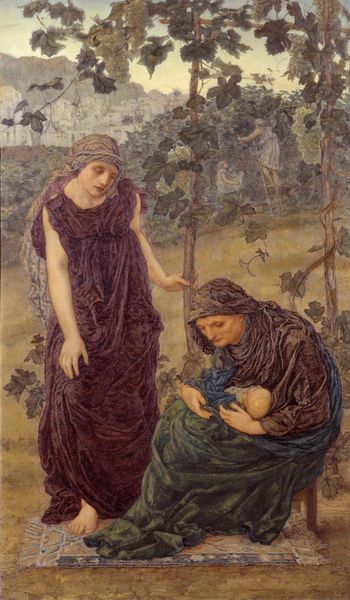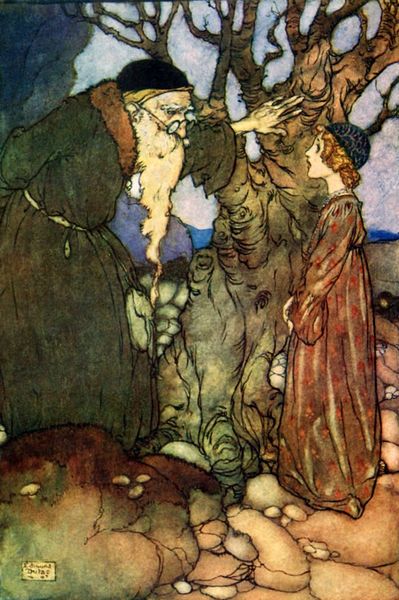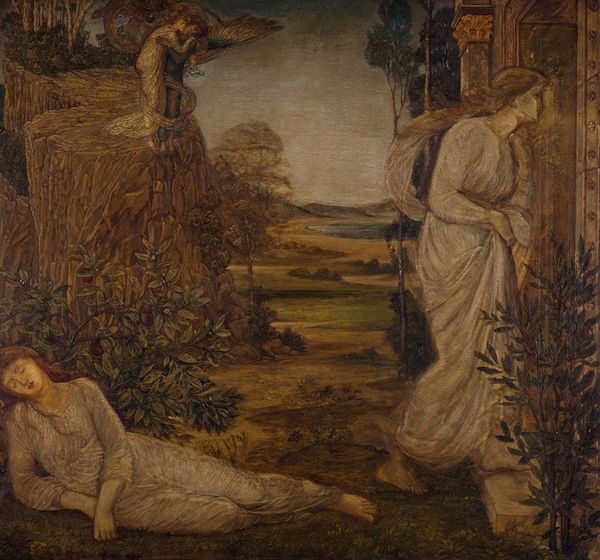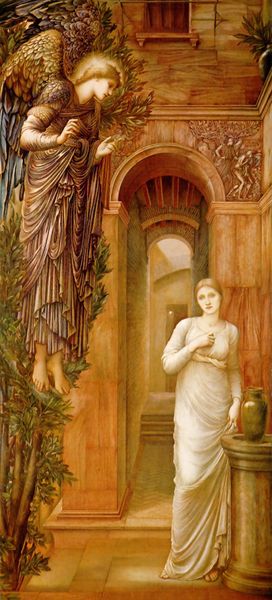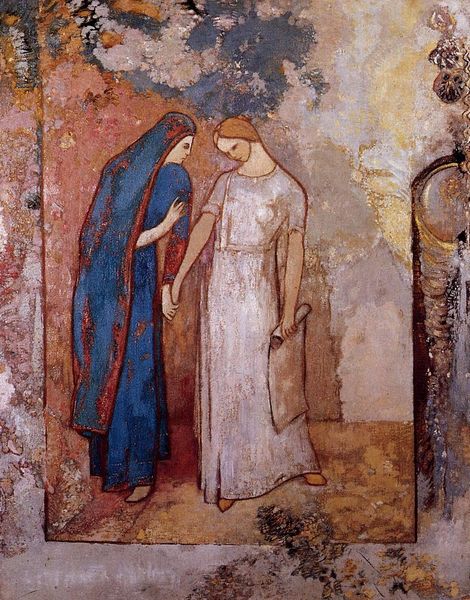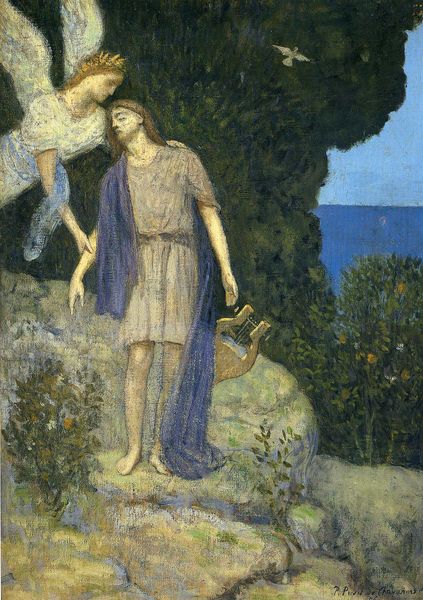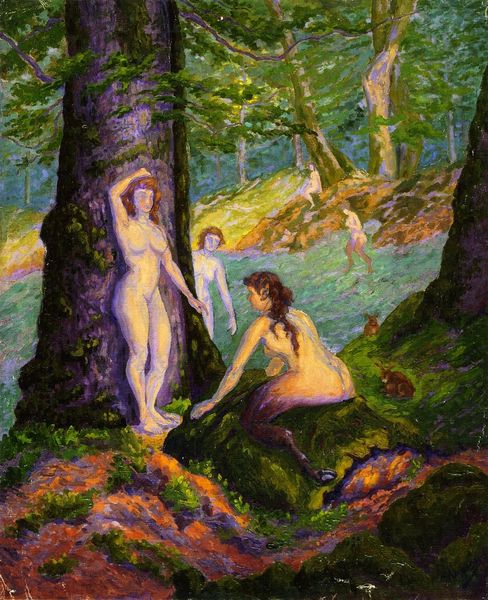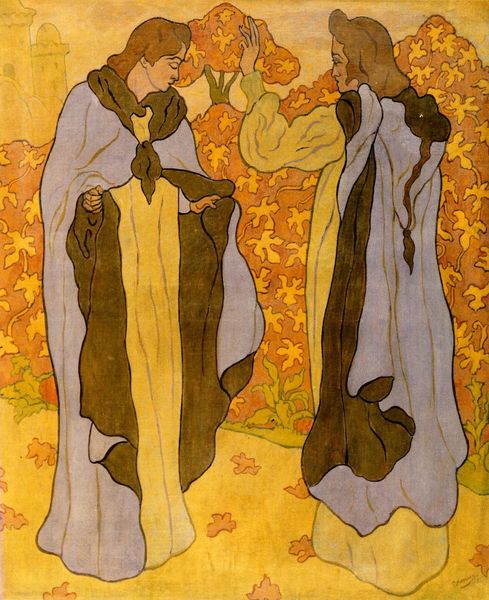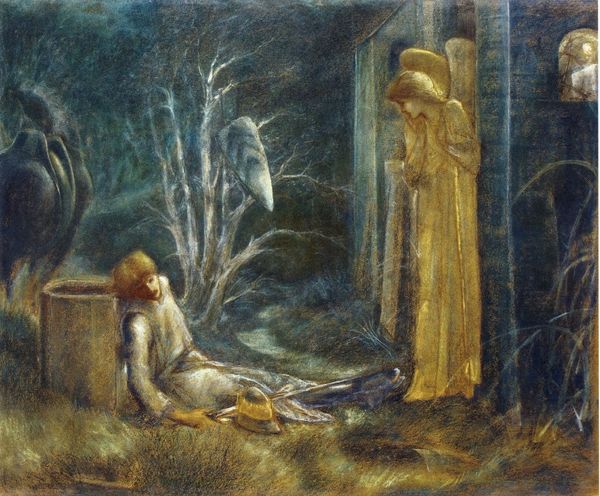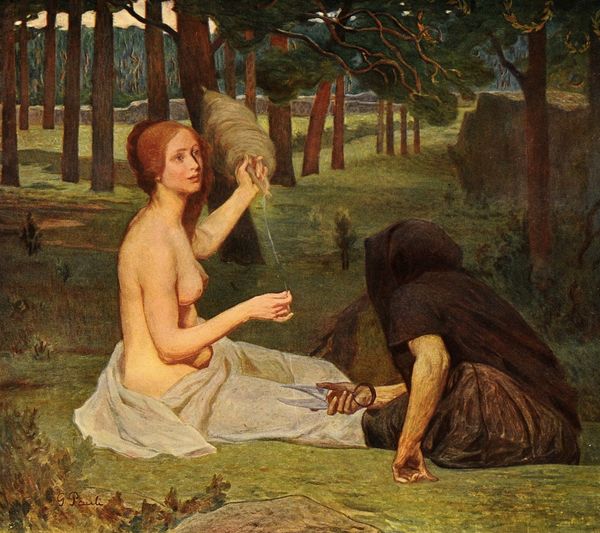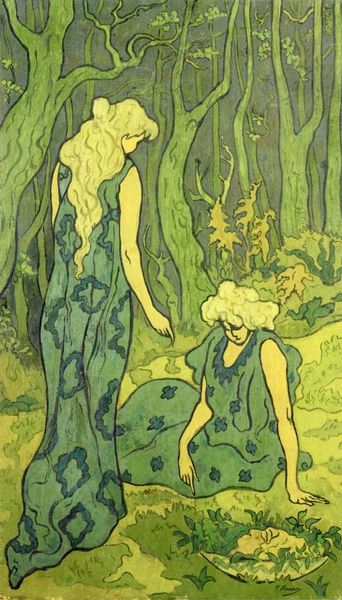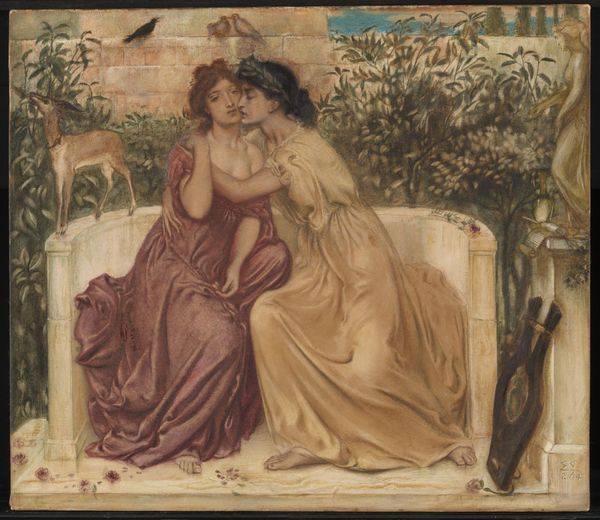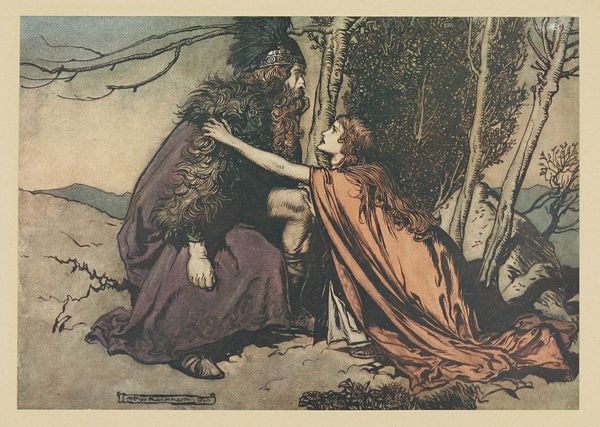
tempera, painting
#
art-nouveau
#
narrative-art
#
tempera
#
painting
#
landscape
#
figuration
#
naive art
#
art nouveau
Copyright: Public domain
Paul Ranson created this painting, likely in the 1890s, using oil on canvas. At first glance, the scene depicts two figures in draped garments, positioned in a garden setting that is both earthly and otherworldly. The gesture of the outstretched arms is a powerful, recurring motif. One figure extends her hand in a gesture of offering or invitation, and the other reciprocates. The open hand, throughout art history, has signified a myriad of meanings—from supplication and benediction to greeting and farewell. The motif of draped figures harkens back to classical antiquity, yet it finds itself echoed through the Renaissance, Baroque periods, and beyond. These symbols are cultural remnants, each age reinterpreting and reimagining them to fit its own psychological landscape. Note how this scene resonates on a subconscious level, evoking a sense of timeless connection. It's a testament to how motifs and symbols resurface, evolve, and take on new meanings in different eras.
Comments
No comments
Be the first to comment and join the conversation on the ultimate creative platform.
